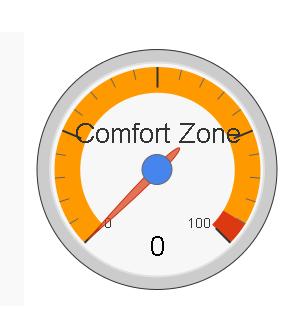Sure you’ve
heard about the Comfort Zone concept before. Maybe you know right where you stand when it
comes to that or maybe you aren’t really aware. Either way, you may find out by
using this innovative calculator at whatismycomfortzone.com created by MarcusTaylor.
The project’s
objective is based on William Edwards Deming’s philosophy:
You can’t improve what you can’t measure.
Moreover,
it focuses on the professional, adrenaline, and lifestyle aspects so that you
can take action as soon as possible depending on which one you get the highest
score. In three easy steps, you get to learn about your strengths and
weaknesses:
- Complete a very short survey
- See your results
- Grow your comfort zone!
As part of
the results, the calculator also includes a variety of links that helps you
grow your Comfort Zone.
I already
took it…and if you’re curious about my score, check it on Twitter!
How did you
do?















